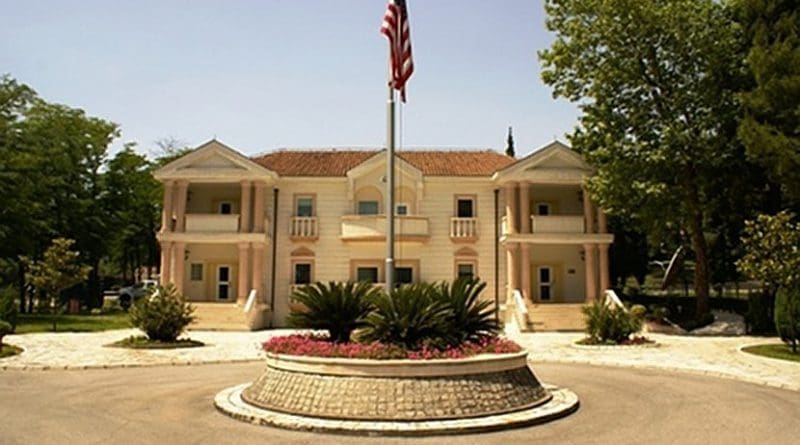Montenegro: Police Seek To Identify US Embassy Attacker
By Dusica Tomovic
Montenegrin media reported that a 42-year-old war veteran from the capital Podgorica carried out Wednesday’s grenade attack on the US embassy, although police have yet to confirm this.
Local media on Thursday named the alleged attacker as Dalibor Jaukovic from Podgorica, a war veteran who fought with Yugoslav Army forces in Kosovo in 1999, citing unnamed police sources and Jaukovic’s family.
BIRN could not independently verify the attacker’s identity and police are expected to give more details during the course of Thursday.
The attacker blew himself up with a second explosive device after throwing the grenade at the US embassy compound in Podgorica, police have said. His motives remain unknown.
Earlier on Thursday, police said they were “working intensively” to identify the attacker.
“The prosecutor is directing the police investigation and the [process of] identification,” the government said on Twitter.
The embassy was closed at the time of the attack and local media reported that no one else was hurt and that there was no significant damage to the compound.
Police closed access roads around the embassy, sealing off the area.
The embassy has warned US citizens to avoid the area.
“Following our internal review, Embassy Podgorica confirms all Mission personnel are safe and accounted for following the incident early this morning,” it said.

